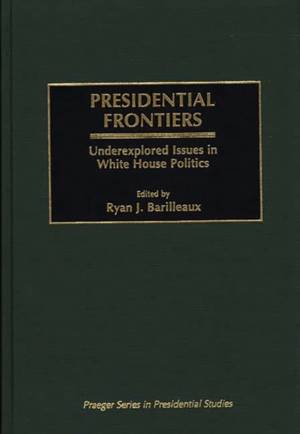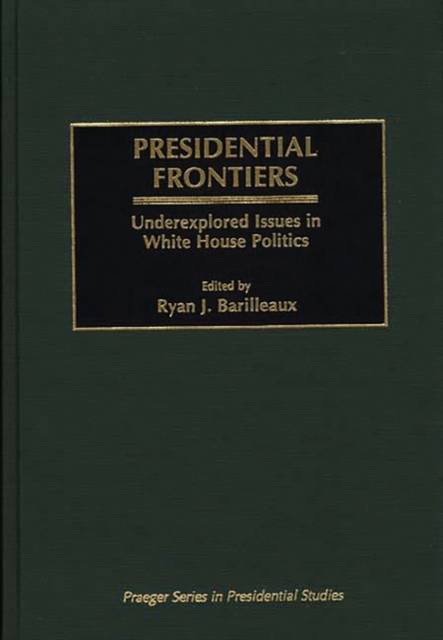
- Retrait gratuit dans votre magasin Club
- 7.000.000 titres dans notre catalogue
- Payer en toute sécurité
- Toujours un magasin près de chez vous
- Retrait gratuit dans votre magasin Club
- 7.000.0000 titres dans notre catalogue
- Payer en toute sécurité
- Toujours un magasin près de chez vous
161,45 €
+ 322 points
Description
The American presidency is the single most important political office in the United States, but it is also a complex institution that scholars and the general public still do not fully understand. The scholarly literature on the presidency is extensive, but many aspects of the office have received little--if any--attention and yet are relevant to White House politics. This edited collection takes readers into territory that has been heretofore unexplored or underexplored.
Is the president a representative of the public, and what does this mean? What are the powers of the president to make peace? How do presidents use their office to influence cultural issues? What signficance does the First Lady have as a political/cultural symbol? The established scholars and promising young researchers who contributed to this volume explore these and other important issues. All chapters are linked by a common effort to address issues that need more attention and to discuss how those interested in the future of the American presidency--citizens as well as scholars--can enlarge their understanding of the office, its operations, and its place in American political life.Spécifications
Parties prenantes
- Auteur(s) :
- Editeur:
Contenu
- Nombre de pages :
- 256
- Langue:
- Anglais
- Collection :
Caractéristiques
- EAN:
- 9780275961077
- Date de parution :
- 30-06-98
- Format:
- Livre relié
- Format numérique:
- Genaaid
- Dimensions :
- 161 mm x 243 mm
- Poids :
- 576 g

Les avis
Nous publions uniquement les avis qui respectent les conditions requises. Consultez nos conditions pour les avis.






